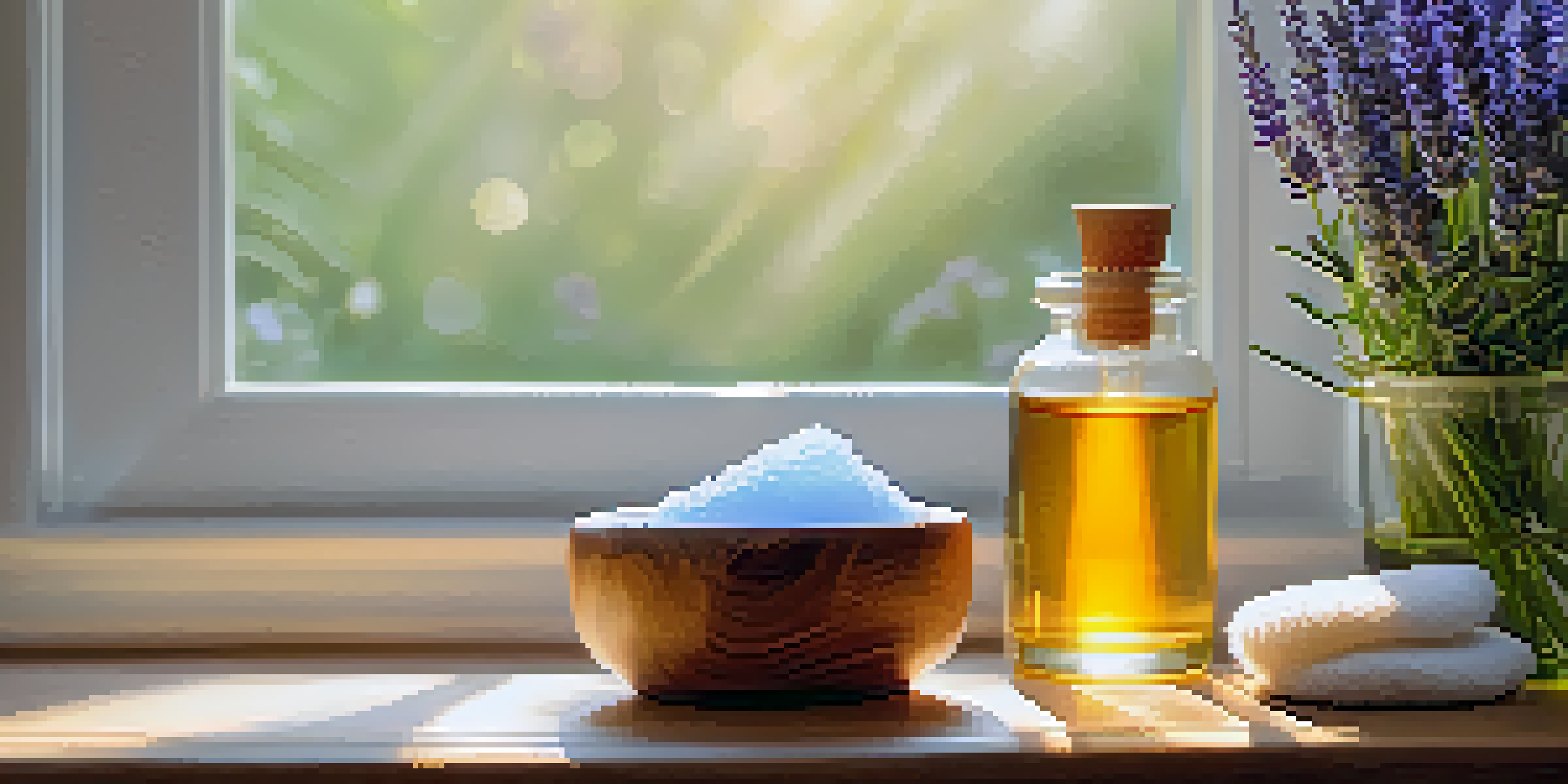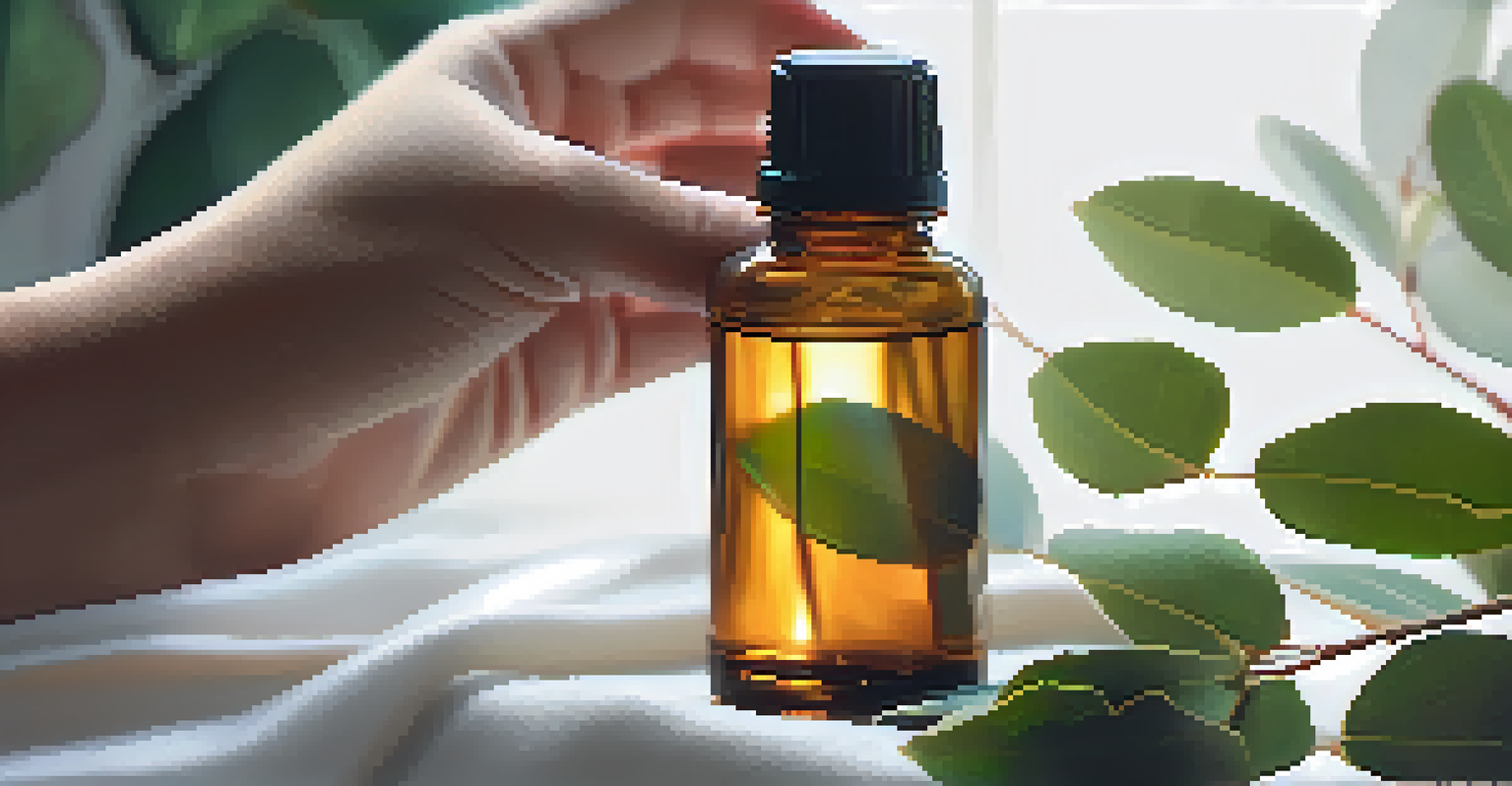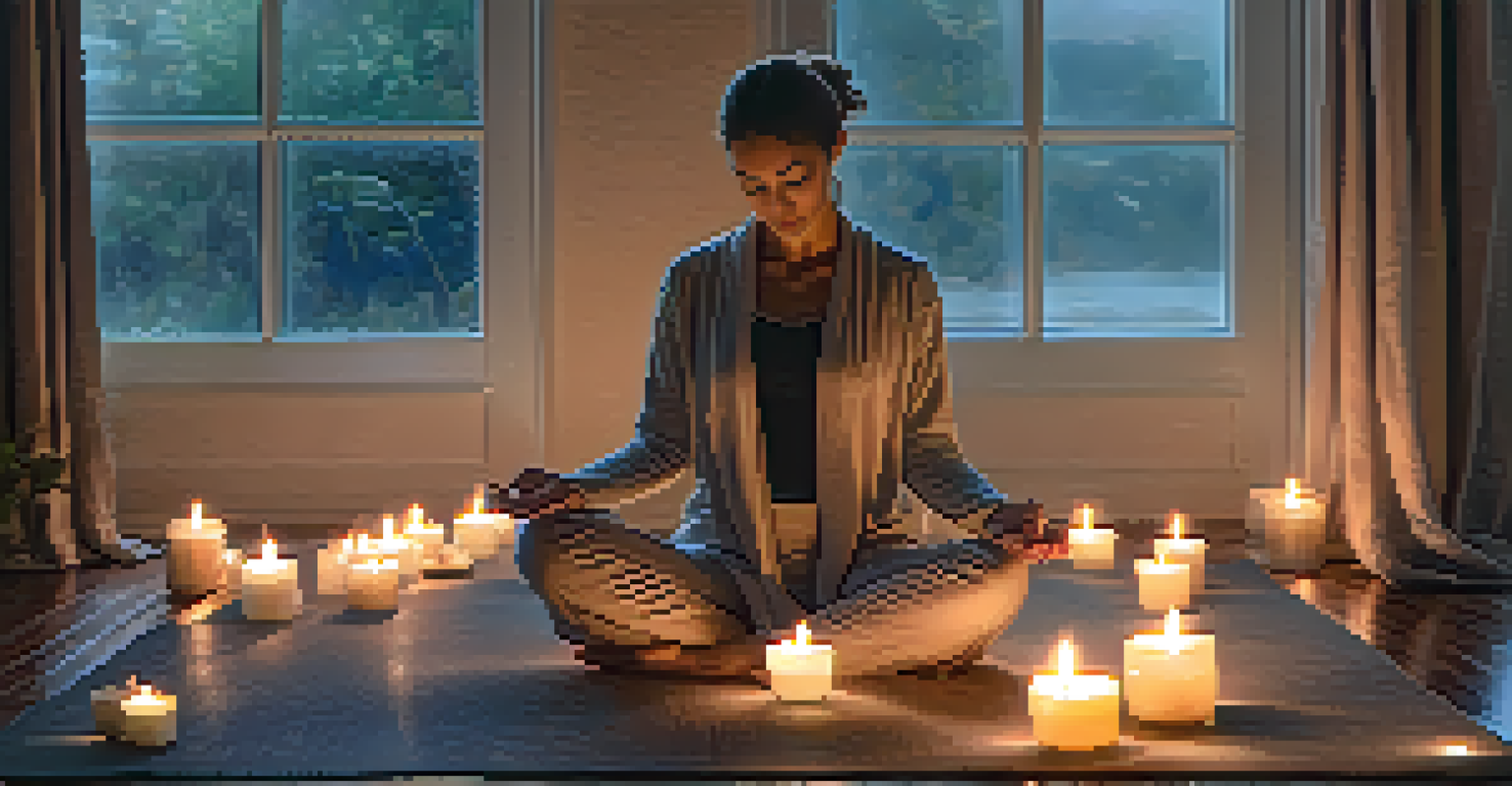Understanding the Benefits of Aromatherapy for Healing

What is Aromatherapy and Its Origins?
Aromatherapy is a holistic healing practice that uses natural plant extracts, known as essential oils, to promote physical and emotional well-being. The roots of this practice can be traced back to ancient civilizations, where fragrances were used in rituals and healing. Today, it combines modern science with age-old wisdom to improve health and enhance quality of life.
The greatest medicine of all is to teach people how not to need it.
Essential oils, derived from flowers, leaves, and fruits, are often inhaled, applied topically, or used in diffusers to create a calming atmosphere. For example, lavender oil is widely recognized for its soothing properties and can help reduce anxiety. This versatility is one of the reasons why aromatherapy has gained popularity in wellness circles.
Understanding the origins and applications of aromatherapy sets the stage for its benefits. By appreciating this rich history, one can better grasp how these essential oils contribute to healing in contemporary settings.
The Science Behind Aromatherapy and Healing
While aromatherapy might seem like a simple practice, there is a wealth of science that supports its effectiveness. Essential oils can influence the brain through the olfactory system, which is closely linked to emotions and memories. Studies have shown that inhaling certain scents can lead to changes in brain activity, promoting relaxation or alertness.

For instance, research has found that essential oils like peppermint can enhance cognitive function and boost energy levels. On the other hand, oils such as chamomile are known for their calming effects, making them ideal for stress relief. This duality of stimulation and relaxation exemplifies how aromatherapy can cater to various needs.
Aromatherapy Enhances Well-Being
Aromatherapy uses essential oils to promote both physical and emotional health, combining ancient practices with modern science.
By understanding the science behind these reactions, users can make informed choices about which essential oils to incorporate into their routines. This knowledge empowers individuals to tailor their aromatherapy experiences for maximum benefit.
Emotional and Mental Health Benefits of Aromatherapy
One of the key benefits of aromatherapy is its positive impact on emotional and mental health. Many essential oils have been shown to alleviate stress, anxiety, and even symptoms of depression. For example, bergamot oil is often used to uplift mood and create a sense of calm, helping individuals navigate through challenging moments.
Aromatherapy is a healing art that uses the therapeutic properties of essential oils to promote physical and emotional well-being.
Using aromatherapy can also foster mindfulness and relaxation, encouraging individuals to take a moment for themselves amidst a hectic day. Incorporating essential oils into daily routines, such as during meditation or yoga, can enhance these practices and promote a deeper emotional connection. This can lead to improved overall mental health.
In a world where mental health is increasingly prioritized, aromatherapy provides a natural and accessible tool for self-care. By integrating these fragrant oils into one’s life, emotional resilience can be strengthened.
Physical Health Benefits of Aromatherapy
Aromatherapy isn’t just beneficial for the mind; it has a range of physical health advantages as well. Certain essential oils possess anti-inflammatory, antibacterial, and antiviral properties, making them useful for addressing various ailments. For instance, eucalyptus oil is often used to relieve respiratory issues due to its decongestant qualities.
Additionally, essential oils like ginger and peppermint can aid digestion and alleviate nausea, making them great companions for travelers or those dealing with digestive discomfort. These oils can be used in massages or diluted in baths for a soothing experience that addresses physical symptoms.
Emotional Benefits of Essential Oils
Many essential oils, like bergamot and lavender, can alleviate stress and anxiety, contributing positively to mental health.
Understanding the physical benefits of aromatherapy can inspire individuals to explore natural remedies for common health issues. By leveraging these oils, one can potentially reduce reliance on pharmaceuticals and embrace a more holistic approach to health.
Aromatherapy for Stress Relief and Relaxation
In our fast-paced world, stress relief is a necessity, and aromatherapy offers a delightful way to unwind. Scents like lavender and ylang-ylang are renowned for their calming effects, helping to lower heart rates and reduce feelings of anxiety. Creating a serene environment with these scents can transform a chaotic day into a peaceful retreat.
Incorporating aromatherapy into relaxation routines, such as during baths or before sleep, can significantly enhance the overall experience. A few drops of essential oil in a diffuser or bath can create a spa-like ambiance right at home. This simple act can encourage deeper relaxation and promote better sleep quality.
By prioritizing stress relief through aromatherapy, individuals can cultivate a healthier lifestyle. It becomes a cherished ritual that not only soothes the mind but also nurtures the body.
How to Get Started with Aromatherapy
Getting started with aromatherapy is easier than you might think! First, it’s essential to select high-quality essential oils that resonate with your personal preferences and needs. You can find numerous options online or at local health stores, but always check for purity and sourcing to ensure the best results.
Once you have your oils, consider how you’d like to use them. You can diffuse them, add them to baths, or even create DIY blends for topical application. For beginners, starting with a few well-known oils like lavender, eucalyptus, and tea tree can provide a solid foundation to explore their benefits.
Physical Health Support with Oils
Certain essential oils possess healing properties, such as anti-inflammatory and antibacterial effects, which can aid in various physical ailments.
As you become more attuned to your body’s responses, you can experiment with different oils and methods. This journey of discovery can be both enjoyable and rewarding, leading to a personalized aromatherapy experience that suits your lifestyle.
Safety Tips and Considerations for Aromatherapy
While aromatherapy is generally safe, it's important to keep a few safety tips in mind to ensure a positive experience. Always perform a patch test when trying a new essential oil to check for any allergic reactions, especially if you plan to apply it to the skin. Some oils may cause irritation if used undiluted or in high concentrations.
Additionally, pregnant women, children, and individuals with certain health conditions should consult a healthcare professional before using essential oils. Some oils can interact with medications or may not be suitable for everyone, so it’s crucial to be informed.

By being mindful of these considerations, you can enjoy the benefits of aromatherapy safely and effectively. Taking the time to educate yourself ensures that your journey into this aromatic world is both enriching and safe.